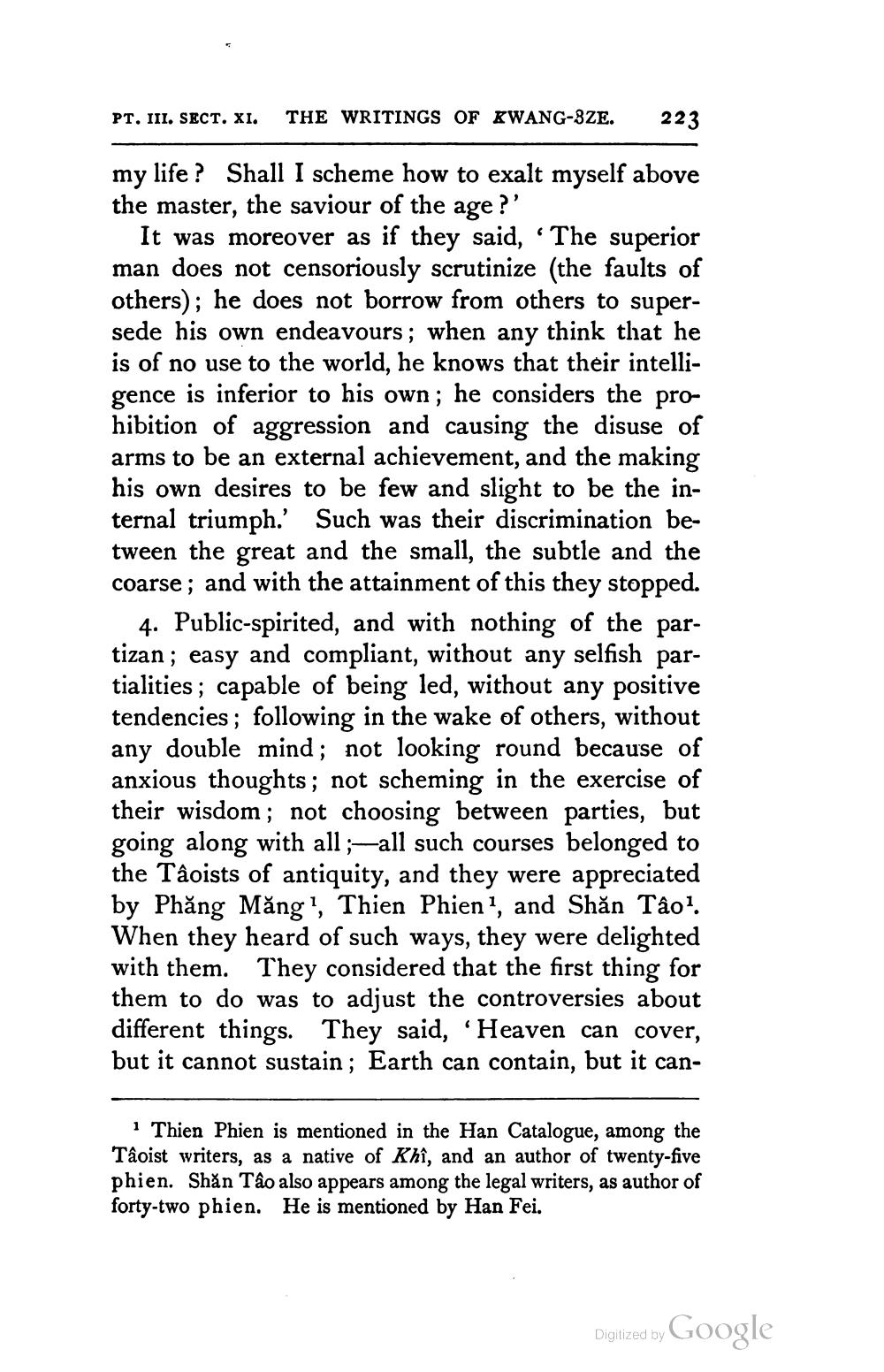________________
PT. III. SECT. XI. THE WRITINGS OF KWANG-SZE.
223
my life? Shall I scheme how to exalt myself above the master, the saviour of the age?'
It was moreover as if they said, “The superior man does not censoriously scrutinize (the faults of others); he does not borrow from others to supersede his own endeavours; when any think that he is of no use to the world, he knows that their intelligence is inferior to his own; he considers the prohibition of aggression and causing the disuse of arms to be an external achievement, and the making his own desires to be few and slight to be the internal triumph. Such was their discrimination between the great and the small, the subtle and the coarse; and with the attainment of this they stopped.
4. Public-spirited, and with nothing of the partizan; easy and compliant, without any selfish partialities; capable of being led, without any positive tendencies; following in the wake of others, without any double mind; not looking round because of anxious thoughts; not scheming in the exercise of their wisdom; not choosing between parties, but going along with all ;—all such courses belonged to the Taoists of antiquity, and they were appreciated by Phăng Măng, Thien Phien, and Shăn Tao. When they heard of such ways, they were delighted with them. They considered that the first thing for them to do was to adjust the controversies about different things. They said, 'Heaven can cover, but it cannot sustain; Earth can contain, but it can
1 Thien Phien is mentioned in the Han Catalogue, among the Tâoist writers, as a native of Khî, and an author of twenty-five phien. Shăn Tâo also appears among the legal writers, as author of forty-two phien. He is mentioned by Han Fei.
Digitized by Google




